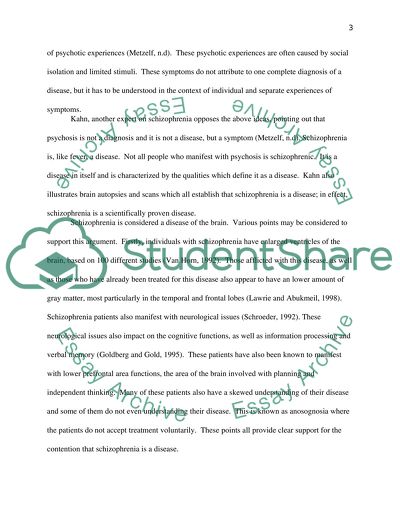Cite this document
(“Is Schizophrenia a Disease Essay Example | Topics and Well Written Essays - 1000 words”, n.d.)
Retrieved from https://studentshare.org/psychology/1430599-is-schizophrenia-a-disease-
Retrieved from https://studentshare.org/psychology/1430599-is-schizophrenia-a-disease-
(Is Schizophrenia a Disease Essay Example | Topics and Well Written Essays - 1000 Words)
https://studentshare.org/psychology/1430599-is-schizophrenia-a-disease-.
https://studentshare.org/psychology/1430599-is-schizophrenia-a-disease-.
“Is Schizophrenia a Disease Essay Example | Topics and Well Written Essays - 1000 Words”, n.d. https://studentshare.org/psychology/1430599-is-schizophrenia-a-disease-.


